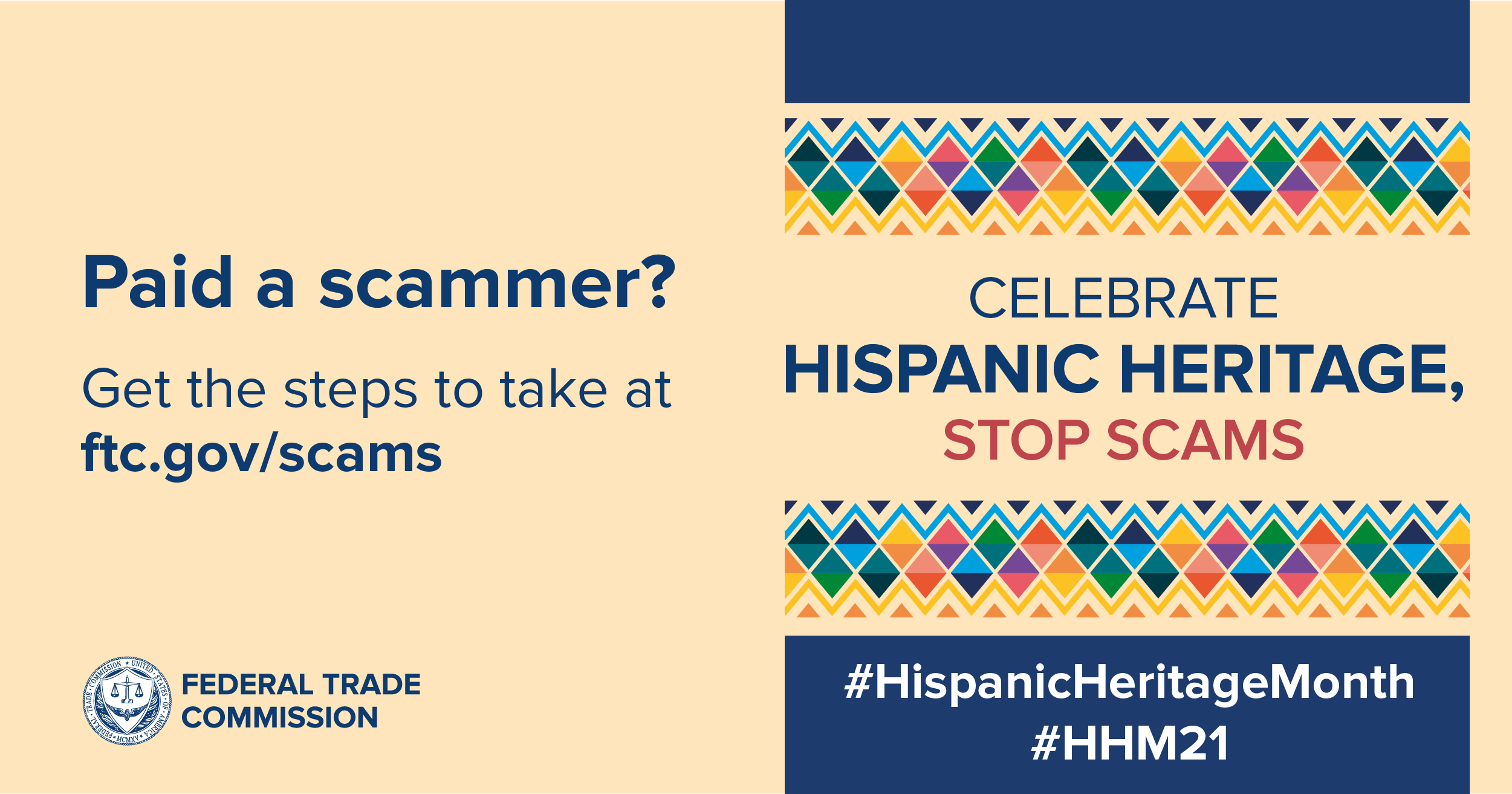 Last week, we kicked off the celebration of Hispanic Heritage Month with ideas about recognizing and avoiding scams. This week, it’s about what to do if you think you’ve paid a scammer. These steps might not apply to you, but there’s probably a family member, a friend, or someone in your community who could use them. So please help share these through your community.
Last week, we kicked off the celebration of Hispanic Heritage Month with ideas about recognizing and avoiding scams. This week, it’s about what to do if you think you’ve paid a scammer. These steps might not apply to you, but there’s probably a family member, a friend, or someone in your community who could use them. So please help share these through your community.
Scammers can be very convincing. They call, email, and send text messages trying to get our money or personal information. They often target specific communities, including Latinos, and frequently use scare tactics. And, unfortunately, they're good at what they do.
So if you’ve already paid someone you think is a scammer, what’s your next step?
-
Act quickly. If you think you’ve sent money to a scammer or government impersonator, contact the bank, gift card, or credit card company you used to send the money. Tell them that it was a fraudulent transaction. Then ask them to reverse it and give you your money back.
-
Did you send a wire transfer through a company like Western Union or MoneyGram? If so, contact the wire transfer company. Tell them it was a fraudulent transfer. Ask them to reverse the wire transfer and give you your money back.
-
MoneyGram: 1-800-MONEYGRAM (1-800-666-3947)
-
Western Union: 1-800-325-6000
-
Scammers often ask people to pay using wire transfers. The FTC brought successful cases against both Western Union and MoneyGram, and the companies agreed to return hundreds of millions of dollars to people who were tricked into wiring money to scammers using their services. The settlements also required both companies to make changes to make it harder for scammers to use MoneyGram or Western Union to defraud customers.
-
Did you send cash? If so, chances are it’s gone. But contact the U.S. Postal Inspection Service at 877-876-2455 and ask them to intercept the package. To learn more about this process, visit USPS Package Intercept: The Basics. If you used another delivery service, contact them as soon as possible.
If you spot a scam, tell your loved ones and people in your community about it so they can avoid it, too. Then tell the Federal Trade Commission at ReportFraud.ftc.gov. Your reports can make a huge difference in knowing what’s happening in your community.
